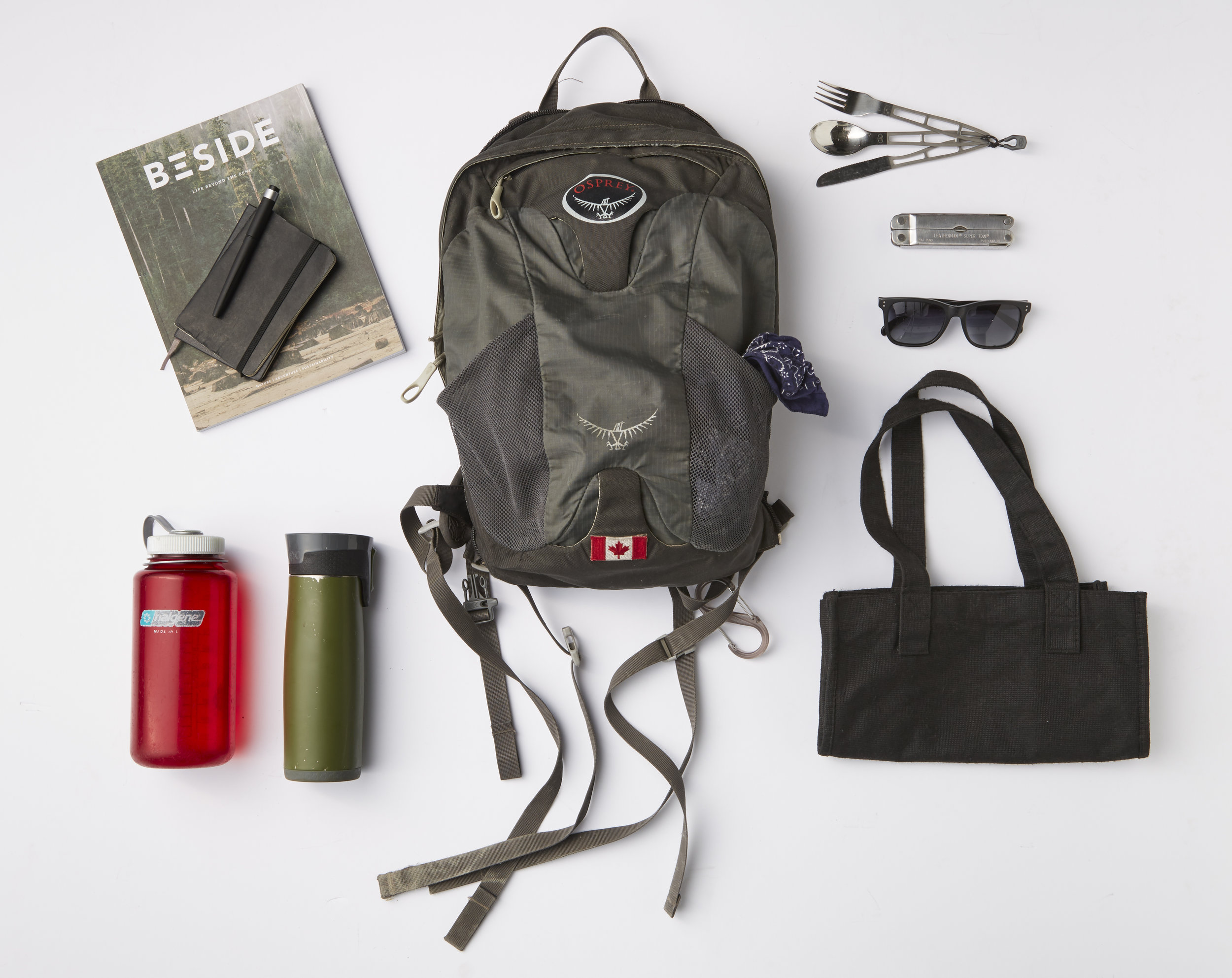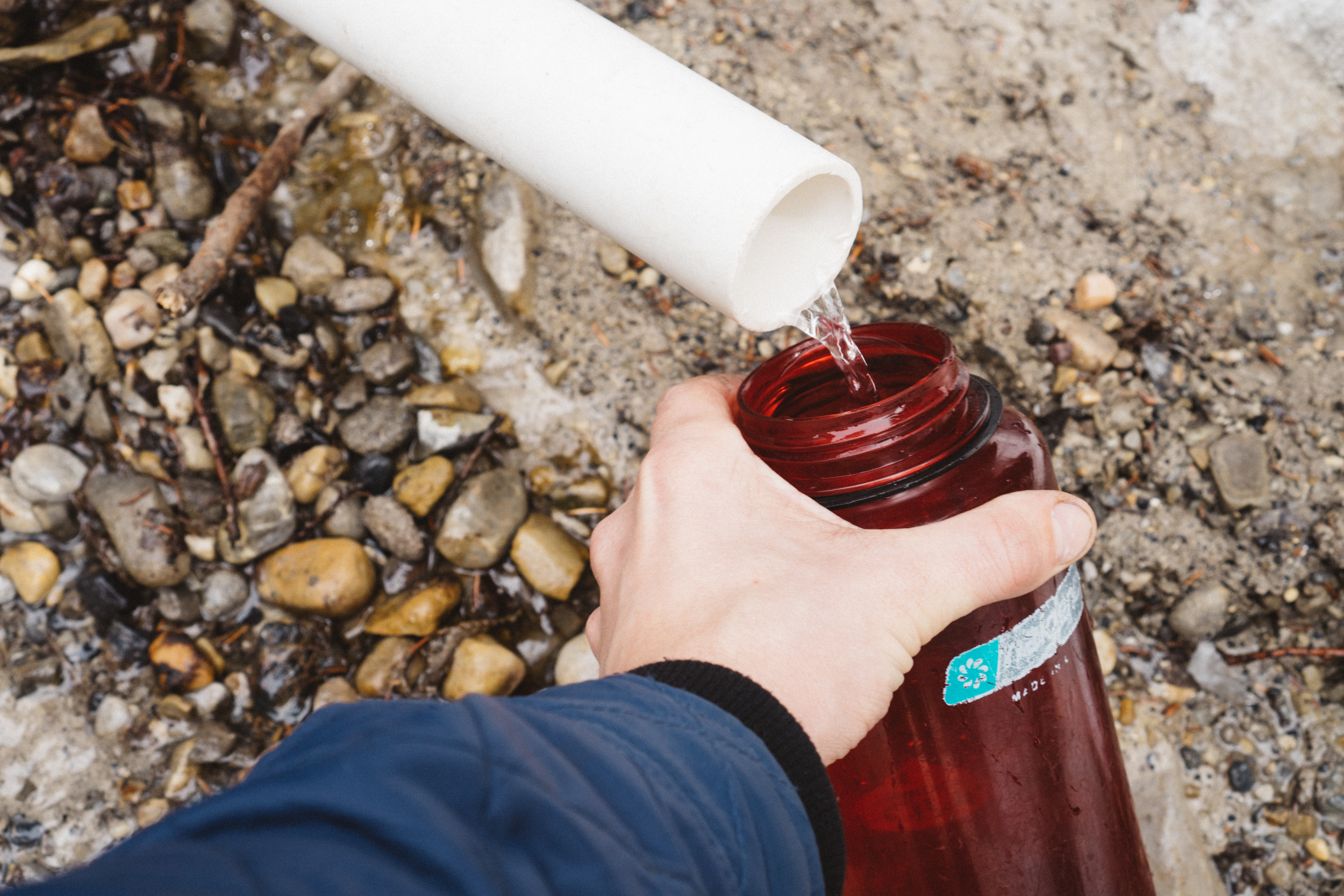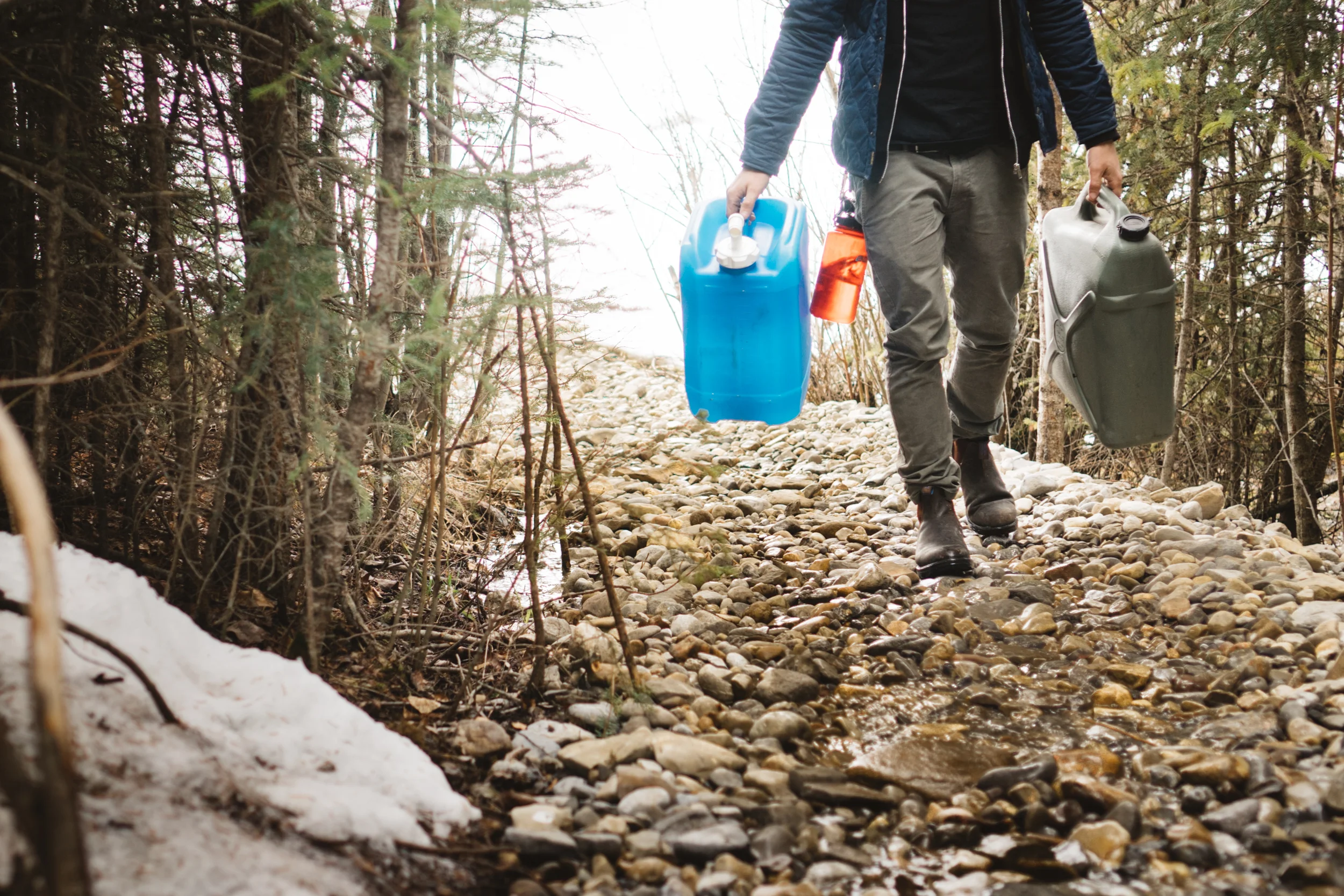Products For Intentional Living: A Starter Kit
A general look at my daily 'kit'. Some items have been upgraded since.
One of the first things I did when I began thinking deeply about how I could reduce my environmental impact was first assessing what daily habits were negatively affecting my impact. It was easy to identify what simple steps I needed to take as soon as I slowed down and paid attention. Also, every listicle on the topic outlines essentially the same 'Easy Day-To-Day Methods to Reduce Your Impact'. Lets take a look at a few of those, and some additional techniques I like to take...
Reusable Bottles
Definitely one of the easiest and most recommended steps is to avoid using single-use plastic bottles and to-go cups. It's alarming to consider how many plastic water bottles or 'to-go' coffee cups are used in a single day. I don't think I need to go into detail about the affects of the roughly 1 million water bottles purchased every minute, but it's seriously bad. Just to think, there's literally an island of plastic in the ocean and we're essentially feeding our ocean life, and therefore ourselves, these bottles after we use them once. Not something I'm looking for in my diet...
Personally, I've been carrying Nalgene bottles with me for years and it has become essentially part of my aesthetic. Although I know it's dorky, I have a Nalgene hanging from my daypack on a carabiner everywhere I go. This thing literally never leaves my side and, aside from reducing my environmental impact, it also acts as constant reminder to drink water; I now drink around the recommended daily intake of 3-4L a day (x1 Nalgene carryings 1L).
Check it out: https://www.mec.ca/en/product/5017-275/Everyday-Wide-Mouth-Loop-Top-Water-Bottle
I'm a huge coffee fan, and I feel that my coffee deserves respect. The benefits of carrying a reusable coffee mug greatly outweigh the single use cups. Firstly, the mug could essentially pay for itself by A) encouraging you to make your own coffee at home and taking it with you (much cheaper), and B) saving money by taking advantage of the discount offered at many coffee shops. Secondly, it just seems more practical: it won't spill in your vehicle; it keeps it hotter for longer (mine is rated for 14hrs!); and, if the occasion happens arise, you always have a container to use if someone wants to share a beer.
I recently went with Klean Kanteen based on their high ethical standards and focus on quality in their products. Check 'em out: https://www.kleankanteen.com/pages/supporting-action
The one I've come to love can be seen here: https://www.mec.ca/en/product/5051-387/Insulated-Café-Bottle-590ml
Plastic Bags Suck
This one is super easy. There are enough studies, articles, and news reports to tell you how much plastic bags suck, so I won't too into it, BUT one organization I have recently been following and been intrigued by is Bye Bye Plastic Bags. Based in Bali, Indonesia, it's a group of young people making waves through education and global encouragement.
A cellphone shot of rocking the bag while taking a photo in Angkor Wat, Cambodia. 2015.
In terms of my bag practices, I constantly have my Osprey Day Pack that came as an attachment to my 55L travel pack (this bag travelled with me all across Asia and it's still holding up strong). Additionally, inside I carry a reusable fabric grocery bag that I use if my pack gets full. You can get these anywhere but there's some cool people making them on Etsy!
Check out the Osprey 55L pack here: https://www.mec.ca/en/product/5056-872/Farpoint-55-Pack
Avoiding Plastic Utensils
As another attempt to avoid single use plastics I always have a set of stainless steel utensils in my pack. They take up no space and allow me to avoid the countless amount of times that take-out places try and provide plastic ones. The amount of times restaurants supply plastic utensils without asking is dissapointing, but I've made a habit of stating that I don't need utensils when I initially make my order. There's never any problem, and they sometimes seem stoked to not have to give you theirs. Win win!
I use this GSI Stainless Steel set because I like having separate utensils, but you could always get a spork to take up even less space. Check them out: https://www.mec.ca/en/product/5050-865/Glacier-Stainless-Cutlery-Set
Repair Before Replace
Although this could be more metaphoric, it still relates to reducing your impact as repairing before replacing can drastically reduce landfill. Today, when something breaks it's so easy to just go to your local Walmart and replace it, but this mentality just leads to filling landfills and supporting a consumeristic lifestyle. Aside from the environmental benefits, there's also the benefit of learning new usable skills and obviously saving money by avoiding buying new.
Once I started carrying a Leatherman with me I was surprised by how much I actually used it. I've been carrying a Swiss army knife on my keys for years and couldn't imagine my life without it, but the leatherman comes into play when I need additional, bigger jobs done.
My leatherman is a much older model that my dad handed down to me but a friend rocks this and it's badass: https://www.mec.ca/en/product/5006-137/Wave-Multi-Tool
I once cut my finger badly with my Swiss army knife and the doctor was shocked how clean the cut was. These knives are as good as their hype: https://www.mec.ca/en/product/0901-165/Classic-Knife
Refillable Pen
My most recent upgrade in my intentional living initiative is the purchase of my refillable pen. I'm a sucker for the tactile experience of note taking/list writing so I can't bring myself to go completely digital, but I thought a refillable pen would at least help me avoid throwing out pens every few months. My pen would be considered entry level in the fancy pen world, but I still feel super classy when I use it; it's got that stylish metal tip, ink flows from it like a rich bottle of scotch, and I feel like I'm stepping back in time every time I fill it.
The pen is small considering its refillable and doesn't require cartridges: Check it out HERE
You will need a bottle of ink and although I know nothing about different inks this has been good to me: Check it out HERE
Bonus: Inspiration & Planning
As mentioned, I love the tactile experience of writing on paper, flipping a book, or looking through beautiful magazines. I know I might be able to reduce my impact if I went completely digital, but I'm allowing myself to continue indulging in this pleasure. In my bag I always have too many books, however they are typically to encourage productivity, inspire future projects, or entertain in a realm that inspires me to act or adventure. Currently in my bag...
Moleskine Daily Planner: I've been using this same planner for 5 years. I buy the same one every new year and don't know what I would do without it: Check it out HERE
Moleskine 3 Pack Cahier Journals: I attach one of these to my planner with the strap and use it for note taking and list making: Check it out HERE
'Beside' magazine: This might be my favourite magazine. It's made out of Montreal, Canada and their list of contributors are truly inspiring. The content is informative, inspiring, and thought-provoking, and their photos and layout are truly inspiring. Check them out: https://beside.media
Current books: I'm currently reading Barbarian Days: A Surfing Life, and Patagonias Tools For Grassroots Activists. Barbarian Days is a fun read about a successful journalists life inspired through surfing (it won a pulitzer!) and Tools for Grassroots Activists is an informative read addressing skills for organizations hoping to become active in the environmental movement.
I hope that helps! Although there's countless variations of each item and many different approaches to reducing your impact, these have been the best that I've found so far. Don't hesitate to reach out if you have any further suggestions! And, finally, I think the most important step is to start by analyzing your own day to day usages. Again, once you start paying attention you might be shocked by the amount of areas you could easily reduce your impact.
Thanks!
Dylan











